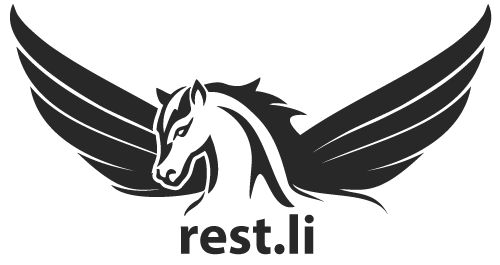-
Notifications
You must be signed in to change notification settings - Fork 0
Home

Rest.li is a REST+JSON framework for building robust, scalable service architectures using dynamic discovery and simple asynchronous APIs.
Rest.li fills a niche for building RESTful service architectures at scale, offering a developer workflow for defining data and REST APIs that promotes uniform interfaces, consistent data modeling, type-safety, and compatibility checked API evolution.
Oh, you want to see some code, don't you?
Basically, Rest.li is a framework where you define schema's for your data:
{
"name" : "Greeting", "namespace" : "com.example.greetings", "type" : "record",
"fields" : [
{ "name" : "message", "type" : "string" }
]
}
Write servers:
@RestLiCollection(name = "greetings")
class GreetingsResource extends CollectionResourceTemplate<Long, Greeting> {
public Greeting get(Long key) {
return new Greeting().setMessage("Good morning!");
}
}
And then write clients:
Greeting response = restClient.sendRequest(new GreetingsBuilders.get().id(1L)).getResponseEntity();
System.out.println(response.getMessage());
And get all the benefits of a robust, scalable REST+JSON framework.
- Promote uniform interfaces through consistent data modeling and REST conventions
- Seamlessly integrate a JSON serializable data layer including a data schema language and generated language bindings
- Provide published interface definitions, generated from server code
- Make calling services dead simple with generated type-safe client bindings
- Versioning with automated compatibility checking
- Simple asynchronous API
- Dynamic discovery with load balancing
- Java 1.6+
- Gradle 1.2+
- Rest.li
- Data Schema and Templates
- Dynamic Discovery (D2)
- Request/Response (R2)
- FAQs
- [Checking Out/Building] (wiki/Building-with-Rest.li)
- How to Contribute
Rest.li is the top layer of a larger software stack code named 'pegasus'. Pegasus is comprised of the following major components:
The pegasus data layer, which provides an in-memory data representation structurally equivalent to JSON, serialization to/from JSON format, and a schema-definition language for specifying data format.
The pegasus data template code generation tool, which generates type-safe Java APIs for manipulating pegasus data objects.
The pegasus request/response layer, which provides fully asynchronous abstractions for transport protocols, along with implementations for HTTP based on Netty and Jetty.
The pegasus dynamic discovery layer, which uses Apache Zookeeper to maintain cluster information. D2 provides client-side software load balancing.
The pegasus Rest.li framework, which provides a simple framework for building and consuming RESTful resources. Rest.li provides resource patterns which streamline common CRUD use cases for collections of entities and associations between entities.
- Dynamic Discovery (D2)
- Data Schema and Templates
-
Rest.li
- Server
- Client
- Projections
- Tools
- FAQs